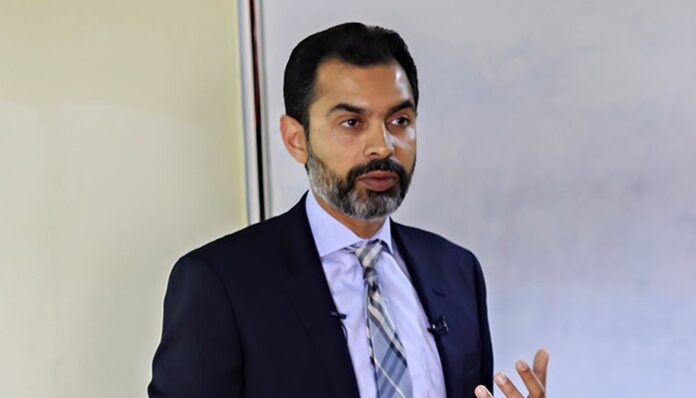KARACHI: Lockdowns are a luxury of the rich, and countries like Pakistan cannot afford them, according to the State Bank of Pakistan (SBP) Governor Reza Baqir.
The central bank governor also said that Pakistan is the ‘poster child’ for havoc caused by the Covid-19 pandemic.
The comments were made in a webinar organized by the World Bank on Wednesday, titled “Lasting Scars: The Global Impact of the Pandemic”. Joining Baqir was Liliana Rojas-Suarez, Director of the Latin America initiative, Center for Global Development; and Eswar Prasad, Professor of Trade Policy at Cornell University.
The talk was moderated by Ceyla Pazarbasioglu, the Vice President of Equitable Growth, Finance and Institutions at the World Bank.
Baqir was the only head of a central bank at the panel discussion, and consequently discussed not only global ramifications of the pandemic, but also Pakistan-specific problems.
According to Baqir, Pakistan has had a history of recurrent imbalances, and was on a downward path of worsening indicators. However, in the fall of 2018, the Pakistan Tehreek-e-Insaf (PTI) government took office and began to decisively address those imbalances. “We had to take tough decisions for stabilisation. Such decisions are always hard and they are never that popular,” said Baqir.
Over the course of 2019, these decisions began to show results, where Pakistan was buying dollars, and was seeing its exports grow after five years of stagnation.
However, according to Baqir, Covid-19, which he dubbed as ‘the mother of all external shocks’ has robbed Pakistan of the story it was telling the world.
“Covid is not only impacting lives, it is impacting policy making, and impacting the narrative that emerging markets are sharing,” said Baqir.
Baqir outlined three steps that the SBP had taken in this crisis. First, he highlighted the Ehsaas emergency cash programme, which according to him was one of the largest cash transfer programmes implemented, and had benefited over 12 million families.
Second, the SBP has introduced concessional financing for businesses to cover payroll expenses. Baqir estimated that this financing had protected up to a million jobs.
Third, Baqir highlighted the program under which businesses could defer the principal repayments of loans. As per the governor, almost $3 billion worth of principal repayments have been extended, and 95 percent of these beneficiaries are small borrowers.
The governor also discussed the recent World Bank review “Global Economic Prospects”, pointing out that the countries that are the most vulnerable to the impact of Covid-19 also typically have the least policy space for decisions.
Stating that Covid-19 is going to increase inequality across countries, Baqir said it was up to international financial institutions to figure out what was the best way to help these countries.
“They are lenders of last resort…it is part of their charter to be available to help in such circumstances,” said the governor.
Claiming that the global financial crisis of 2009 had changed the culture at places like the International Monetary Fund (IMF) and the World Bank (WB), Baqir said there was a need for the institutions to revisit those frameworks. “We don’t need liquidity problems to become solvency problems,” he said.
On the efficiency of programmes like the Ehsaas programme, Baqir stressed on the challenges faced while working in the ‘second or third’ world.
“When it comes to households that are suffering, the leakages are well worth the cost,” he said.




